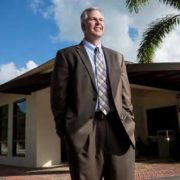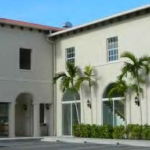Answers. Help. Hope.
by Scott Burgess,
David Lawrence Centers for Behavioral Health,
President and CEO
 One in three households are impacted by addiction. We read about the headlines of lives lost nearly every day from the ongoing opioid epidemic, but there are other deadly challenges we face that are contributing to addiction and unnecessary loss of life in our community.
One in three households are impacted by addiction. We read about the headlines of lives lost nearly every day from the ongoing opioid epidemic, but there are other deadly challenges we face that are contributing to addiction and unnecessary loss of life in our community.
Opioids and fentanyl –A killer is loose on the streets… and online.
According to the Centers for Disease Control, for the first time ever, the United States topped 100,000 drug overdose deaths in a 12-month period in 2021 – an increase of 28.5%. The obvious culprits are the COVID-19 pandemic—which left people vulnerable and isolated, led some to not feeling uncomfortable accessing treatment and— the expansion of the fentanyl black-market.
Fentanyl is now being added into almost every illegal drug, including fake pain pills and anti-anxiety medications, which come in packaging that make it appear as if it comes from a pharmacy and is safe. Even marijuana is being laced with the deadly drug. Not only is it being sold on the streets, but now it is even being sold to teens through the popular Snapchat app.
The number one cause of death among 18 to 45-year-olds in the United States is now fentanyl overdose. From unsuspecting teens experimenting for the first time to our favorite actors, singers, and athletes… no one is immune.
The data also shows that not only have overdose deaths from synthetic opioids (primarily fentanyl) increased, so too have deaths from methamphetamine, cocaine, and prescription pain medication.
“When I began my career with David Lawrence Centers for Behavioral Health (DLC) five years ago, you hardly ever heard of methamphetamine in this county,” said Dave McKay, DLC Substance Use Outreach Coordinator. “Now it is very prevalent in our addiction treatment programs.”
Alcoholism is overlooked, but just as deadly and growing
A lesser discussed substance use epidemic is alcoholism. Alcohol doesn’t attract consistent attention as a killer because it’s legal, easily available, and socially acceptable. However, alcohol is just as deadly as opioids. In 2021, an estimated 95,000 people died from alcohol-related causes, according to the National Institute on Alcohol Abuse and Alcoholism.
“At DLC, more younger individuals are seeking treatment for alcohol use disorder,” said Maggie Baldwin, DLC Crossroads Clinical Director. “This is likely pandemic-related with people working from home and day drinking due to boredom and isolation.”
The reality is that addiction, in all forms, wreaks havoc on communities—from law enforcement and healthcare costs to lost wages and family trauma. In the United States, the costs to healthcare and society, overall, for tobacco, alcohol, illicit drugs, and prescription opioids topped $821 billion.
Barriers to Seeking Care
As with any disease, the best way to diminish those impacted by addiction is through prevention, intervention, and treatment. Recent statistics show that more than 23 million people in America are struggling with an addiction, yet only 10% are getting help.
There can be many real and perceived barriers to accessing treatment. Individuals may worry about financial costs, wait times for a treatment bed or outpatient therapy support, and may hesitate due to guilt, shame or stigma.
In addition to offering a sliding fee scale for those who can’t afford treatment, DLC encourages more people into care by employing Peer Recovery Specialists who share their story of lived experience and provide recovery coaching.
“Our peer recovery specialists are vital examples of how recovery is real and possible,” said Baldwin. “Being non-judgmental goes a long way toward easing client’s fears and anxieties. This builds trust and can encourage individuals to seek treatment.”
How Can You Help?
With knowledge comes power. There is hope and help at DLC, Collier County’s only comprehensive, not-for-profit behavioral health provider serving children and adults. Those facing substance use challenges can access inpatient detoxification, residential rehabilitation, partial hospitalization, intensive outpatient treatment, Medication-Assisted Treatment (MAT) as well as addiction recovery maintenance.
Clients also have access to mental health treatment including trauma therapy which is often a contributing factor to addiction. Those facing legal challenges, can access the Collier County Drug, Mental Health, and Veterans Treatment Courts.
These are community issues that require community solutions. It is critical to ensure care is available for all those in need, and DLC humbly welcomes others to partner with us to support this live-saving treatment.
For more information, visit DLCenters.org or call 239-455-8500.There are many ways you can be become an advocate for behavioral health. Through a year-long “Mind Your Mind” initiative, DLC is working to change the dialogue around behavioral health by encouraging people to talk more openly and improve access to care.
Visit DLCMindYourMind.org for free articles, resources, and tools.




Leave a Reply
Want to join the discussion?Feel free to contribute!